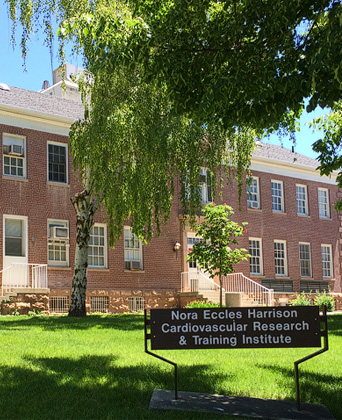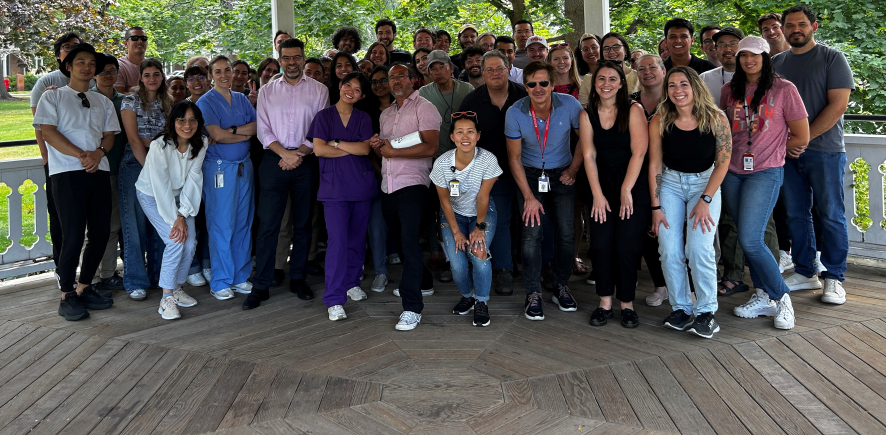CUTTING EDGE CARDIOVASCULAR RESEARCH
Nora Eccles Harrison Cardiovascular Research and Training Institute (CVRTI) delivers cutting-edge cell-to-bedside research and education of cardiovascular disease, which is one of the leading causes of death worldwide. At the CVRTI, we are both developing new insights into the biology of heart muscle cells, and developing novel therapeutics for patients with heart failure and cardiac arrhythmias such as sudden cardiac death.
Located at the University of Utah, the CVRTI nucleates a campus wide, multidisciplinary team of fourteen individual investigator laboratories who are both scientists and physician scientists. The research of the laboratories spans from basic muscle biology and channel electrophysiology to metabolism and genetics. Founded in 1969, the CVRTI is one of the oldest cardiovascular institutes in the country, and its research has already impacted clinical care from development of the first artificial heart, to the genetic basis of long QT arrhythmias, to using electricity to map heart dimensions for arrhythmia ablation, to myocardial recovery.

CVRTI Seminar Series -RIPS
Thursday, October 9, 2025
12:00 PM – 1:00 PM MT

The Role of Sphingolipids in Heart
Failure and Myocardial Recovery
Rana Hamouche, MD
Postdoctoral Research Associate
Drakos Laboratory, CVRTI

Adipocyte Enhancer Binding Protein 1 (AEBP1) Inhibition as a Potential Anti-Fibrotic Therapy in Heart Failure
Thirupura Shankar, PhD
Postdoctoral Research Associate
Drakos Laboratory, CVRTI
Join us in person only at
Eccles Health Sciences Education Building, EHSEB, Bldg. 575, Room 1700, 25 S. 2000 E. (Lunch Provided)
Latest Blog
Getting a good amount of sleep each night can yield important health benefits throughout your body, including the heart. Experts recommend at least 7 hours of sleep per night for most adults as part of a healthy lifestyle. Sleep is a time when many of your body’s functions slow down. Your body takes this time to handle tissue growth and repair, as well as clear waste material from your brain.



.png)








